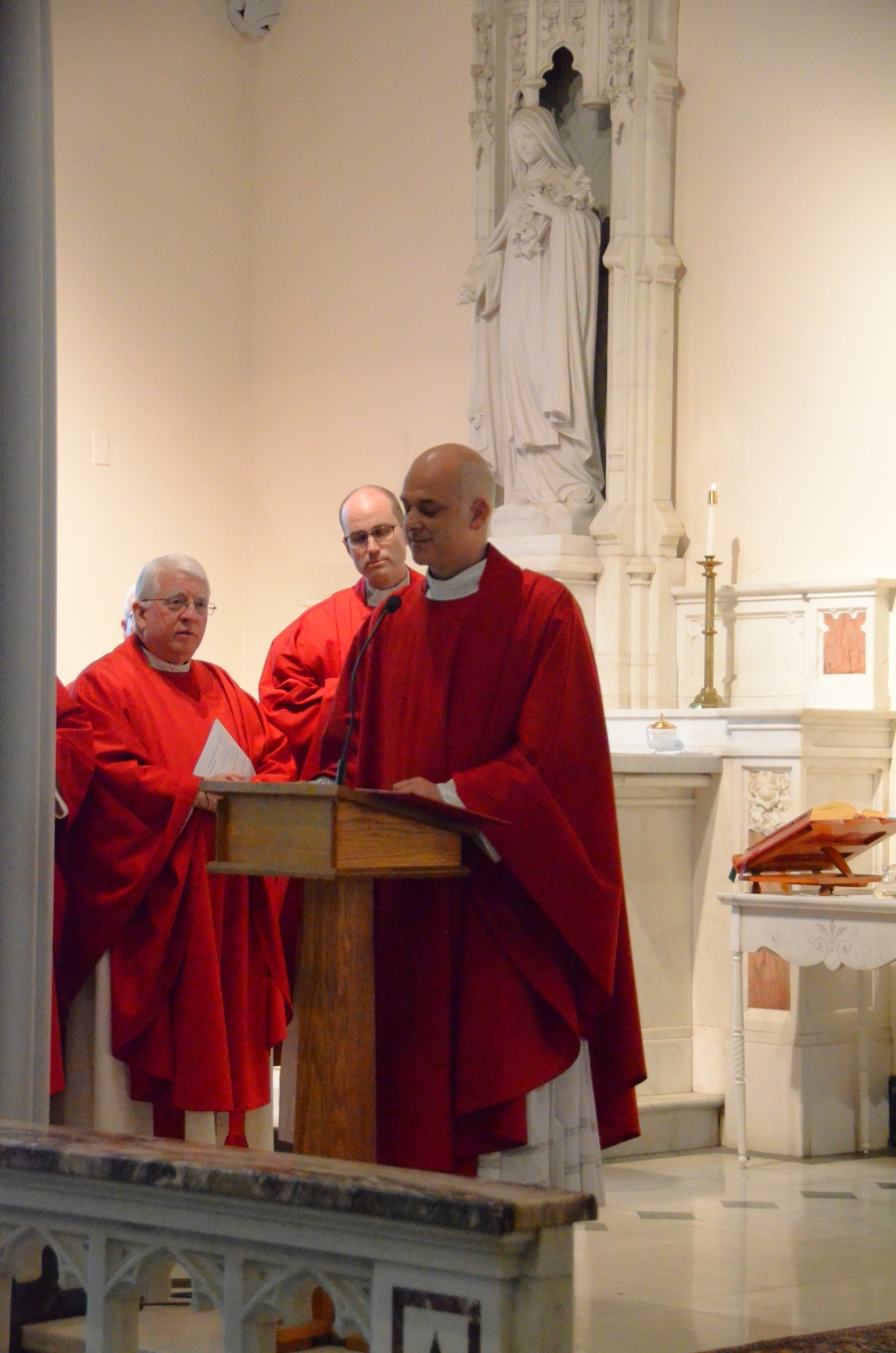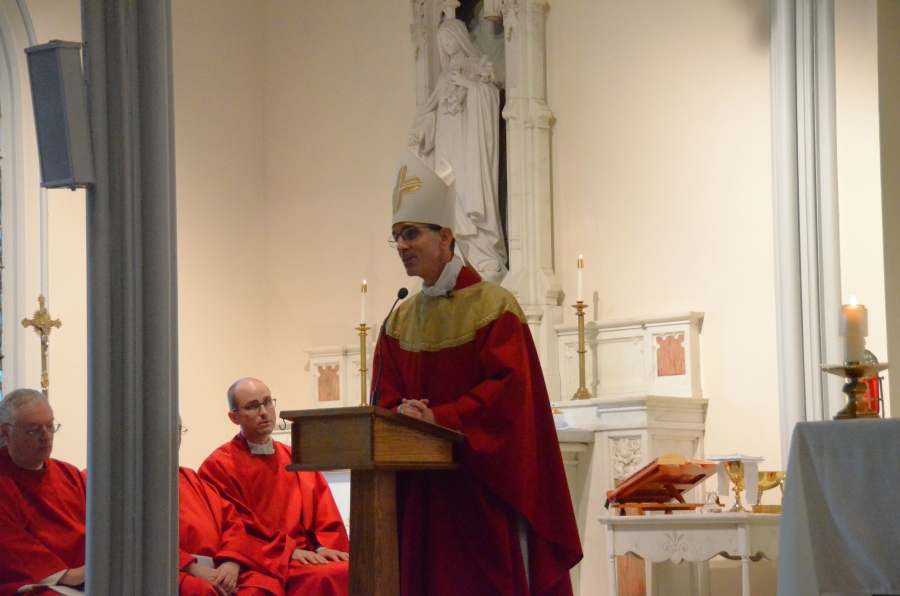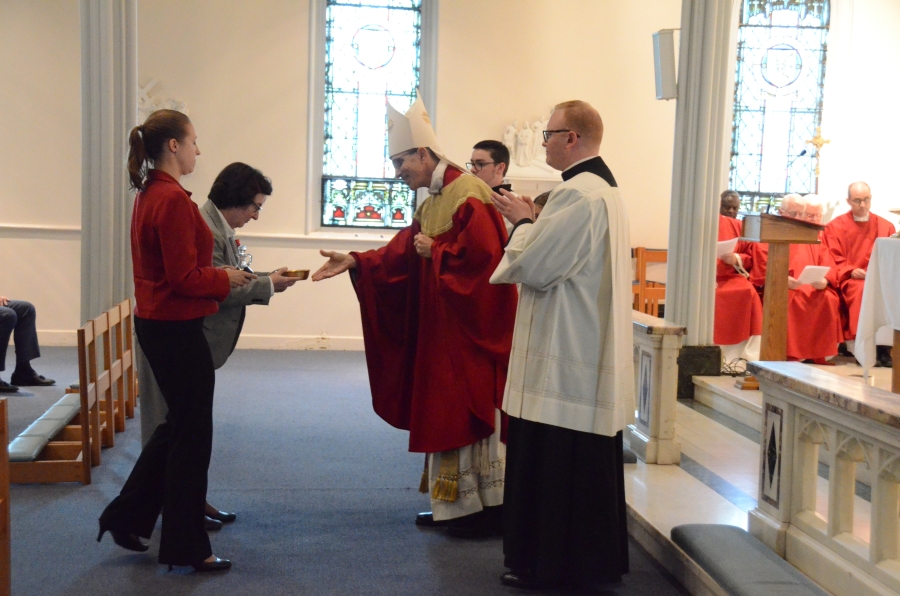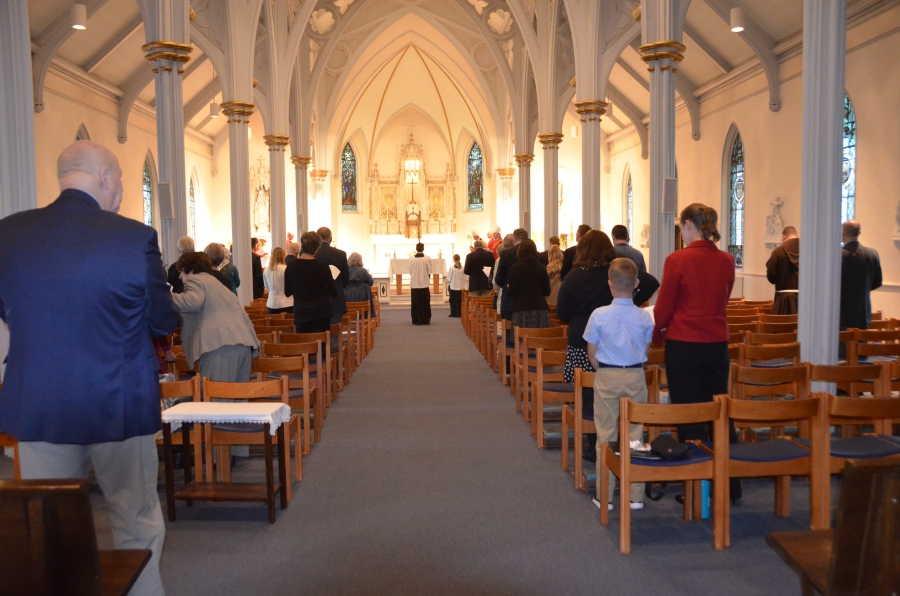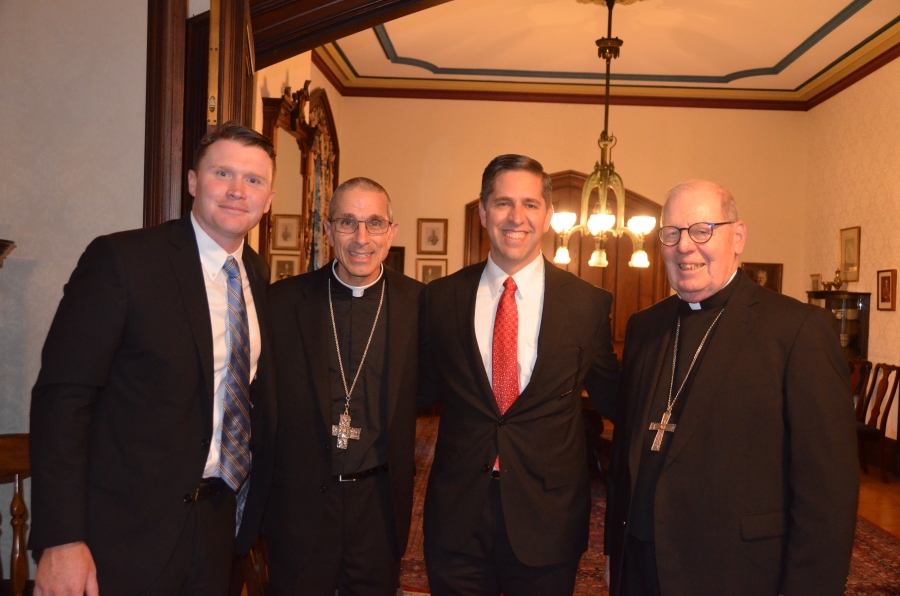Red Mass begins judicial year by invoking the Holy Spirit
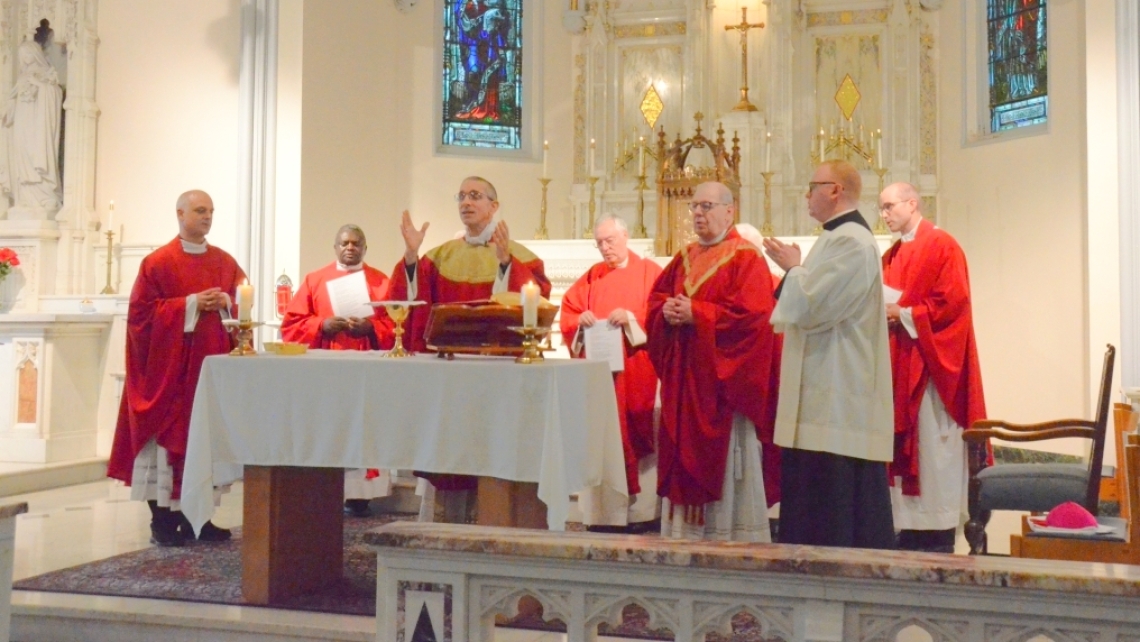
Bishop James Ruggieri celebrated the Red Mass on October 1, 2024, in the chapel of the Cathedral of the Immaculate Conception in Portland, calling judges, lawyers, and all those in the legal profession to join in prayer to the Holy Spirit. Timed with the beginning of the judicial year, this tradition dates back to 1245 when the first Red Mass was celebrated at the Cathedral of Paris. The first Red Mass celebrated in the United States was at the Church of St. Andrew in New York City in 1928.
"It is so important that we as a diocese honor and recognize those who work for justice each and every day," said Suzanne Lafreniere, director of public policy and pro-life liaison for the diocese. Lafreniere, who holds a J.D. from the University of Maine School of Law, convened the planning committee for the event. "I hope this event continues to grow as we engage with those of all faiths working in this profession." Attorneys Eric Wycoff and Giselle Nadeau served as co-chairs of the committee.
The bishop and concelebrants wore red vestments, as is tradition for a Mass of the Holy Spirit. These red vestments symbolize the tongues of fire that indicate the presence of the Holy Spirit, as well as recalling the traditional bright scarlet robes worn by the attending royal judges many centuries ago.
Concelebrating the Mass were: Bishop Emeritus Robert P. Deeley; Monsignor Marc Caron, vicar general; Reverend Jack Dickinson, judicial vicar; Reverend Seamus P. Griesbach, rector of the Cathedral of the Immaculate Conception; Reverend Claude Gendreau, ecclesiastical notary for the tribunal; Reverend Augustine Kifon, parochial vicar for the Portland Peninsula and Islands Parish; and Monsignor Paul Stefanko, vicar for priests.
Attorneys participated in the Mass, including Dan Riley as the lector and Estelle Lavoie and Amanda Doherty as gift presenters.
In his homily, Bishop Ruggieri gave both a historical and modern perspective but cited the common threads across hundreds of years.
"Being a professional of the law, it is good to be reminded of the highest law which governs the human person is the law of conscience," he said. "Catechism is very explicit that of all the laws that govern us as human beings, it is the law of conscience that has precedence."






